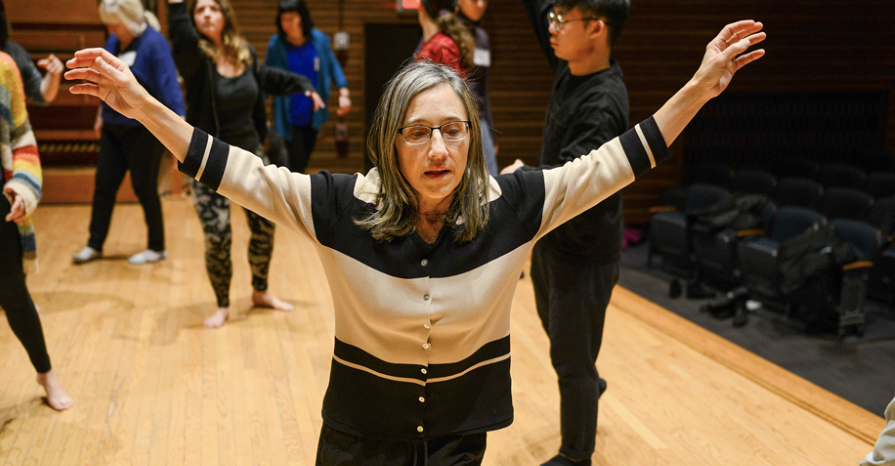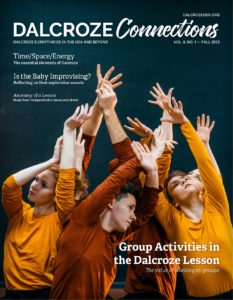
Editor’s Letter
In what may be already obvious to others in this community, Dalcroze work is starting to feel for me like a lifelong journey where the experiences, the creativity, and the people we encounter help us evolve into greater musicians and humans.
Dalcroze experiences always leave me with a lot to think about, oftentimes in the form of inspiration: to strive toward more creativity and excellence in my own teaching, and to create more joyful activities for my students. Conversely, sometimes conversations about Dalcroze with its many and varied practitioners leaves me feeling unclear or confused: Is this work a form of music education, or is there more to it than that? Is there even one singular definition of what this work is or can be?

For example, does improvised piano music have to be an active participant in the lesson for the session to count as Dalcrozian?
How about joy? If the lesson is joyful, does that automatically mean it was a success? What about a lesson that had no joy, but was otherwise accurate and precise—can we call it Dalcrozian?
Does this work simply boil down to exploring the relationships between time, space, and energy? (For clarification on these concepts, see the article titled “Time/Space/Energy.”)
Or is it the fact that Dalcroze is practiced en groupe that defines it? (For more on how to strategically use group activities in a Dalcroze lesson, see the article “Group Activities in the Dalcroze Lesson.”)
If there are no chances for the students to improvise in some way, have they simply participated in a music/movement class? Is Dalcroze unique in that humans of all ages can benefit from its practice? (See Anne Farber’s article on babies and improvisation.)
Sometimes, trying to define Dalcroze work feels like looking through a kaleidoscope, where the view spins to evolve into new images. What is becoming clear to me is that this work might take a lifetime to come into focus, if it ever does! The aspect of constantly striving for a higher level of understanding and creativity is perhaps what so intrigued us about Dalcroze in the first place.
Please enjoy this latest issue, and write in with your thoughts on what Dalcroze work is to you at editor@dalcrozeusa.org
This article was originally published in the Fall 2023 issue of Dalcroze Connections, Vol. 8 No. 1.